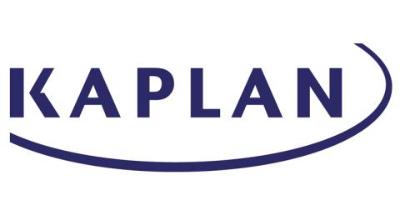Navigating the Complexities of Estate Tax Deferral, Irrevocable Grantor Trusts, and Charitable Gifts of Business Interests for CPAs
Certified public accountants (CPAs) serving business owners must stay informed about the latest developments in estate tax deferral, irrevocable grantor trusts, and charitable gifts of business interests. This article discusses recent changes in lien procedures, the effects of Revenue Ruling 2023-2 on basis step-up, and a groundbreaking case that addresses when a donor will be taxed on a charity's sale of a donated asset.
I. Code §6166: Qualification and Benefits of Deferral
Under Code §6166, business owners can defer estate tax payments on their business interests. However, most are unaware of the automatic secret liens that may interfere with their businesses' ability to retain and expand loans or fidelity bonds. The IRS recently updated its lien procedures, prompting CPAs to reevaluate strategies to protect their clients' interests.
II. Loss of Code §6166 Deferral: Planning for Irrevocable Grantor Trust Sales
Revenue Ruling 2023-2 confirmed that assets held in an irrevocable grantor trust do not receive a basis step-up merely because the deemed owner died. In cases of premature death, a sale to an irrevocable grantor trust may cost more than it saves. CPAs must carefully consider alternative structures, such as preferred partnerships, which can offer attractive income and estate tax benefits.
III. Estate Tax Liens: Effects and Navigation
Automatic secret liens can disrupt a business's financial stability, making it crucial for CPAs to understand and navigate these complexities. Strategies include proactive lien discharge, subordination, or withdrawal, ensuring that their clients' businesses remain unaffected by potential IRS claims.
IV. Basis Step-Up: Irrevocable Grantor Trusts and Real Estate
The lack of a basis step-up on the death of a grantor of an irrevocable grantor trust can significantly impact real estate holdings. CPAs must evaluate alternative strategies, such as transferring assets to a preferred partnership, to maximize tax efficiency and preserve clients' wealth.
V. Preferred Partnerships: Structure, Tax Issues, and Planning
Preferred partnerships can offer several advantages, including income splitting, asset protection, and a basis step-up for heirs. CPAs must understand the structure, income and estate tax issues, and planning techniques to provide comprehensive advice to their clients.
VI. Assignment of Income Rule and Completed Transfers
A recent case radically departed from precedent regarding when a donor will be taxed on a charity's sale of a donated asset. The case also addressed what constitutes "delivery" of stock. CPAs must consider the assignment of income rule and the criteria for determining when a transfer of a business interest is completed.
VII. Charitable Planning: Unique Issues for Business Interests
Donating a business interest poses several unique challenges for both the donor and the charity. CPAs must be aware of these issues and develop creative solutions to maximize the benefits of charitable giving while minimizing potential tax consequences.
Conclusion
CPAs must stay informed about the latest developments in estate tax deferral, irrevocable grantor trusts, and charitable gifts of business interests. By understanding and addressing the complexities of these areas, they can provide their clients with valuable advice and strategic planning to protect and preserve their wealth.
Share This Article
What's Trending?
Trending topics & tools for the CPA community
How Firms are Rethinking Reasonable Comp (Quick Video)
It’s a short video and makes the value of repeatable, data-backed approach clear (especially compared to spreadsheets, gut checks and one-off calculations).
Learn how 8am CPACharge delivers clarity and confidence for accounting firms.
8am™ CPACharge brings invoices, payments, and reconciliation together in a solution designed to make your day easier from start to finish.
Seniors on Social Security Could Face $460 Monthly Cut to Benefits
Jim Komoroski, RSSA®, is quoted in Newsweek, offering expert insight into the projected monthly cuts to Social Security benefits should Congress fail to act.
Resources
Valuable information provided by our sponsors.
Specialize in Social Security
Looking to enhance your retirement planning expertise? Your solution: pursue the Registered Social Security Analyst®...
CPAdirectory members have access to discounted auto and home insurance
At CPAdirectory, we think it's a good thing to provide our members with access to...
Free CPE Course: ChatGPT for Tax Pros — Limited Offer
CPAdirectory and CCH CPELink are giving you free access to the on-demand course: ChatGPT for...
PE Deals In Accounting: Valuations, Structure, Tradeoffs
In this webinar, you’ll hear from firm leaders and industry experts who will share real-world...
Stand Out as a Trusted Social Security Expert with the RSSA® Designation
Designed for CPAs, the Registered Social Security Analyst® (RSSA®) designation provides advanced training to help...
How Firms are Rethinking Reasonable Comp (Quick Video)
It’s a short video and makes the value of repeatable, data-backed approach clear (especially compared...













